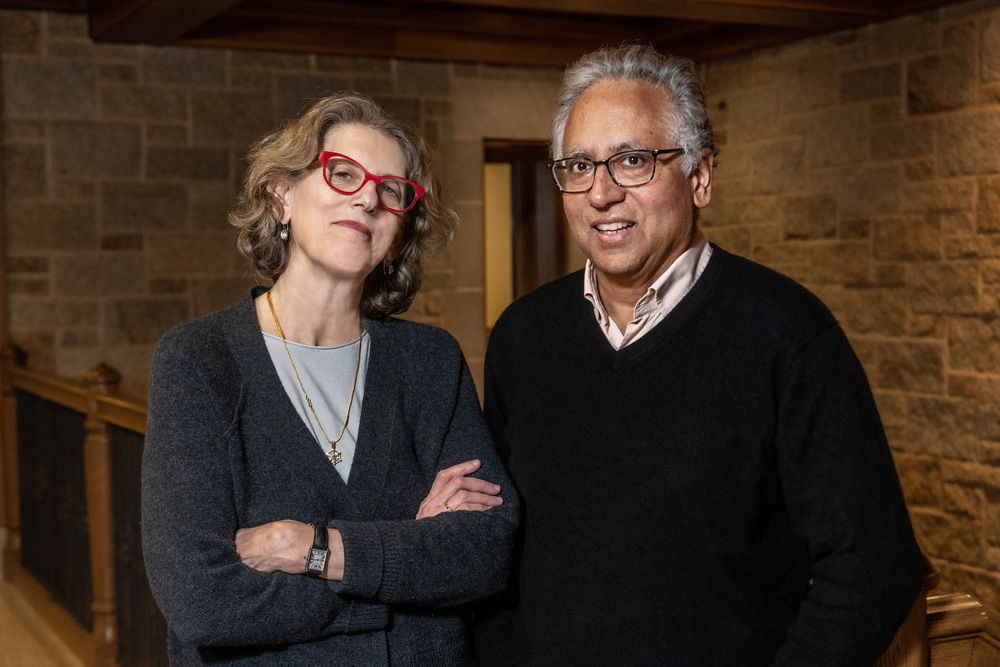‘Curriculum By Design’
In 2012, Boston College faced a dilemma in its efforts to revamp the University’s Core Curriculum, which had been largely unchanged for more than two decades. Many in the BC community supported Core improvements, but disagreed on the means to achieve this objective.
To break the logjam, the University made a surprising decision: At the suggestion of Carroll School of Management Powers Family Dean Andrew Boynton, BC turned to Continuum, a local consulting firm with an expertise in design thinking, to assist in the Core renewal.
It was an unprecedented move for a higher education institution, but bringing Continuum on board helped kick-start the process. Continuum representatives met with Core Renewal Committee members and key BC administrators, held in-depth interviews with faculty, students, and alumni, researched best practices at leading peer institutions, and worked with principal stakeholders on an overall vision and general goals for the Core. The effort took about three years, but ultimately the Core renewal proved successful.
A recently published book, Curriculum by Design: Innovation and the Liberal Arts Core, chronicles BC’s arduous journey to a new Core Curriculum and how it energized faculty, administrators, and students to view liberal arts education as an ongoing process of innovation.
Edited by Boynton, Provost and Dean of Faculties David Quigley, and Rattigan Professor of English Mary Crane, director of BC’s Institute for the Liberal Arts—all of whom co-chaired the Core Renewal Committee—Curriculum by Design also features essays by BC faculty who have been teaching the new courses that resulted from the implementation of the revitalized curriculum.
David Quigley, Mary Crane, and Andy Boynton
The faculty essays offer practical advice on the initial challenges of interdisciplinary and team teaching, problem- or project-based learning, intentional reflection, and other innovative structures and methods of teaching enacted for the first time.
While the framework of BC’s 42-credit Core was retained, faculty members, working in partnership, devised two fresh sets of courses that debuted in September 2015. Six-credit Complex Problem courses address a contemporary issue or controversy and are team-taught by two faculty members from different disciplines. Enduring Question courses are two, three-credit linked courses that focus on an inquiry of fundamental significance from diverse disciplinary perspectives; each class comprises the same students. Both Complex Problem and Enduring Question courses entail faculty-student reflection sessions, which may involve group activities, guest speakers, or field trips off campus.
Although the extent of innovation within individual courses varied, all crucially resulted from faculty from different departments discussing the curriculum, exchanging thoughts on teaching, and then developing the new classes.
Sociology Professor Juliet Schor and her husband, Prasannan Parthasarathi, professor and chair of the History Department, collaborated on the Complex Problem course Planet in Peril: The History and Future of Human Impacts on the Planet, which the pair characterized as the best teaching experience either of them has ever had.

Juliet Schor and Prasannan Parthasarathi (Lee Pellegrini)
“We think it’s because the engagement with the issue that we hoped to create for the students, also happened for us,” said Schor. “It’s not because we weren’t already heavily involved in the topic, but somehow—with this new group of students, new pedagogy, and new format—we developed another way to participate. Partly this was due to developing stronger and more substantive bonds with students than is typical, and partly because the course stretched and forced us to confront how much more we need to learn to confront this problem. In the end, the deep and satisfying immersion that we hoped to develop for our students, also occurred for us.”
According to Quigley, Boynton, and Crane, Enduring Question courses have proven to be easier to develop and teach than Complex Problem classes. Although students occasionally felt that a given pair of courses were not clearly connected, most faculty found ways and means to sharpen the link, and to highlight different disciplinary approaches to common readings, questions, and topics.
Associate Professor of Music Daniel Callahan had never met Associate Professor of Theology Brian Robinette, but they found each other just before course proposals were due, and discovered common ground in their mutual interest in human attention, and how it could be exercised and focused. Their Enduring Question course, Aesthetic and Spiritual Exercises, is a joint exploration into the role of askesis—to focus with an athlete’s dedication—as key to human flourishing.
Brian Robinette and Daniel Callahan (Lee Pellegrini)
“The class is designed to bring academic rigor together with personal appropriation,” said Robinette. “With a scholarly focus on the form, content, and history of Western aesthetic and spiritual practices, we invite critical inquiry into the forms of life they foster. It also highlights the phenomenological and experiential dimensions of such practices, with the hope that students would discover them from the ‘inside.’ The shared pedagogical principle is that students will not really understand or critically evaluate the significance of aesthetic and spiritual exercises unless they experience it themselves.
“Cultivating such attention, and the application of the senses through exercises, then reflecting on those exercises with others can seem odd and embarrassing to our freshmen. But by the end of the semester, it has become a habit, and one that they discuss and write about with considerable joy and without shame.”
Quigley noted that when BC’s previous Core Curriculum renewal began in 1991, it had been a quarter-century since the last revision of the Core.
“A decade into the work of Core renewal, I’m more convinced than ever that the work of curricular revision is the most important work that we are called to do as college faculty and academic administrators,” he said. “Those of us involved from the beginning agree that it remains very gratifying to see the ways in which hundreds of colleagues have, through their own work and commitment, brought the renewed Core to life. The engagement of University faculty, across fields, generations, and schools, has been perhaps the most inspiring outcome.”
